Shin Min-ah plays a prickly but competent dentist who moves to the seaside town of Gongjin after a series of unfortunate encounters leading to the seachange. In Gongjin Yoon Hye-jin meets the enigmatic and ubiquitous Hong Du-shik (Kim Seon-ho) who also happens to be an accomplished jack-of-all-trades and the town’s unofficial problem solver. Du-sik or Chief Hong as he’s affectionately known as, lives his life with a furiously urgent desperation to protect his fellow townsfolk as a man of his calibre eschews the lure of big city bright lights. The premise suggests that a man of his abilities and talents seem out of place in a sleepy town as if he were hiding his candle under a bushel. There’s little doubt he could do better for himself with his intelligence and skill set. Yet he seems content to be a carefree fish in a very small pond freelancing, working to the pay the bills with no intent to accumulate wealth. The fact that he carries a coin purse with him in his travels to conduct his daily transactions in cash is proof that such inferences are valid. He expects to be paid for the work that he does but the laws of supply and demand seem to have escaped his notice. Hong Du-sik is a throwback to another era when life was simpler.
At this point it might be too early to make definitive statements about Du-sik and his motives for staying in Gongjin when it seems that his peers have gone to make their fortunes elsewhere in the country and even overseas. But perhaps his noticeable interest in Thoreau’s Walden and his insistent that he be paid according the minimum wage is indicative of a mind that has rejected modernity’s impulse to hurtle into the rat race with impunity thus avoiding the conspicuous materialism represented by the newcomer Yoon Hye-jin.
That said Hye-jin’s materialistic drive seems cultivated rather than instinctive. It’s about convention and being part of the system rather than being borne of conviction. For her it is the game that people who want to be seen as being successful play. In the same way that campaigning politicians kiss babies and shake hands with the the grassroots of their community. Her materialism is largely about surviving the cut-throat, dog eat dog world of one upmanship. It’s about proving something to the competition — a status symbol for achieving success. The back-biting with former classmates at a wedding is instructive in that regard. This is why she may come across as being contradictory because she is dancing to the tune of a globalist consumerist culture that is more about having the right right street creds. Everyone who is anyone is doing it and it’s a ticket to acceptance into a world that she secretly despises. It certainly fails to fill an unassailable feeling of grief that haunts her.
This contradiction goes some way into explaining why anyone would walk around the beach in a pair of designer high-heel shoes. It’s impractical to say the least but there is something pathetic about a grown woman who commemorates her late mother’s birthday on her own in a beach where she enjoyed some of her best memories. All of her material gains can’t replace the profound loss of growing up without her mother.
In all honesty, the first two episodes did not impress. The attempt to set-up a caricature of the urban-rural divide was hamfisted with its overreliance on coincidences to push the plot forward. Hye-jin’s entry into Gongjin is fraught with misfortunes and she’s made to feel her place as the fish-out-of-water. The initial hostility from Du-sik seems over-the-top and confected. Why’s he so ready to preach the gospel of compromise to someone whose story he barely knows? The fact that there are no long-term ramifications from her foot in mouth faux pas at the seniors party suggests that the introductory episodes were designed to be a temporary placeholder for a much less cartoony (and cringeworthy) vision of life in regional South Korea.
It is fortunate for all that Episodes 3 and 4 feel less like clunky slapstick and more like a far more amenable drama about human beings with diverse histories taking the time to communicate and learn about each other. In reality tribalism makes little sense because there are all kinds issues that divide people across different demographics. Hye-jin might seem on the surface to be the epitome of snobbery to the residents of Gongjin but from my point of view it seems to me that she has her own ideas of what constitutes a life worth living. Then there’s the inexplicable offence that Du-sik takes to her person and maintaining an adversarial stance against Hye-jin even though he’s quick to come to her rescue. Is doing his teenage boy-with-a-crush shtick? Does he not want to look like he’s interested so he’s being perversely obnoxious as a cover? If Hong Du-sik wasn’t being played by the charming Kim Seon-ho, might he not end up coming across as being creepy (like the sexual pervert featured in Episode 4) rather than merely being boorishly idiosyncratic.
I don’t think the show is saying that the conflicts that arise are entirely the fault of Hye-jin although often she’s made to feel that way. It’s true that when establishes a business it isn’t just about having the right qualifications or competence but building genuine relationships with the clientele. Earning trust is an important currency whether one’s in the city or the country. For me Hye-jin’s fault isn’t as much a snob as she is rigid — a stickler for the rules. She’s had to fight for whatever she has (which hasn’t come easily I imagine) and if anything smacks of advantage taking, she reacts defensively. Even while Du-sik is trying to teach her the art of compromise, she manages to find her own way to connect with the people around her driven by her own values.
A side pairing that has piqued my interest is the divorced couple, I-jun’s parents. As the show progresses it’s not hard to see why they ended up divorced despite the fact that the two still have strong feelings for each other. Take for example the installation of a surveillance camera in a popular rubbish dumping area. Instead of thanking her ex for getting the job done (albeit after being threatened) the way Du-shik does, Hwa-jeong dwells on the fact that Yeong-guk could have done it sooner. The man’s a buffoon on some level but she’s still in love with him. It wouldn’t surprise me if the constant belittling and nagging led in part to the breakdown in the relationship. It isn’t as if she’s incapable of a nice word because with everyone else she’s a reasonable neighbourly creature.
This is perhaps where the show’s strength lies — in these every day interpersonal dynamics where individuals are constantly negotiating and coming to areas of agreement in order to define and redefine community. There are snobs on both sides of the city-country equation but the truth is that when you get right down to it, people who come from everywhere have a lot more in common than first meets the eye.
Aside from the chemistry of the dimple duo, there are other commendable aspects to the show. The scenery is very pretty to look at and so are the leads. Just looking at all the prettiness is therapy itself. I doubt that it will do anything particularly mind blowing or do much to re-shape the genre. For a piece of escapist fare like this, I don’t think anyone will mind at all.



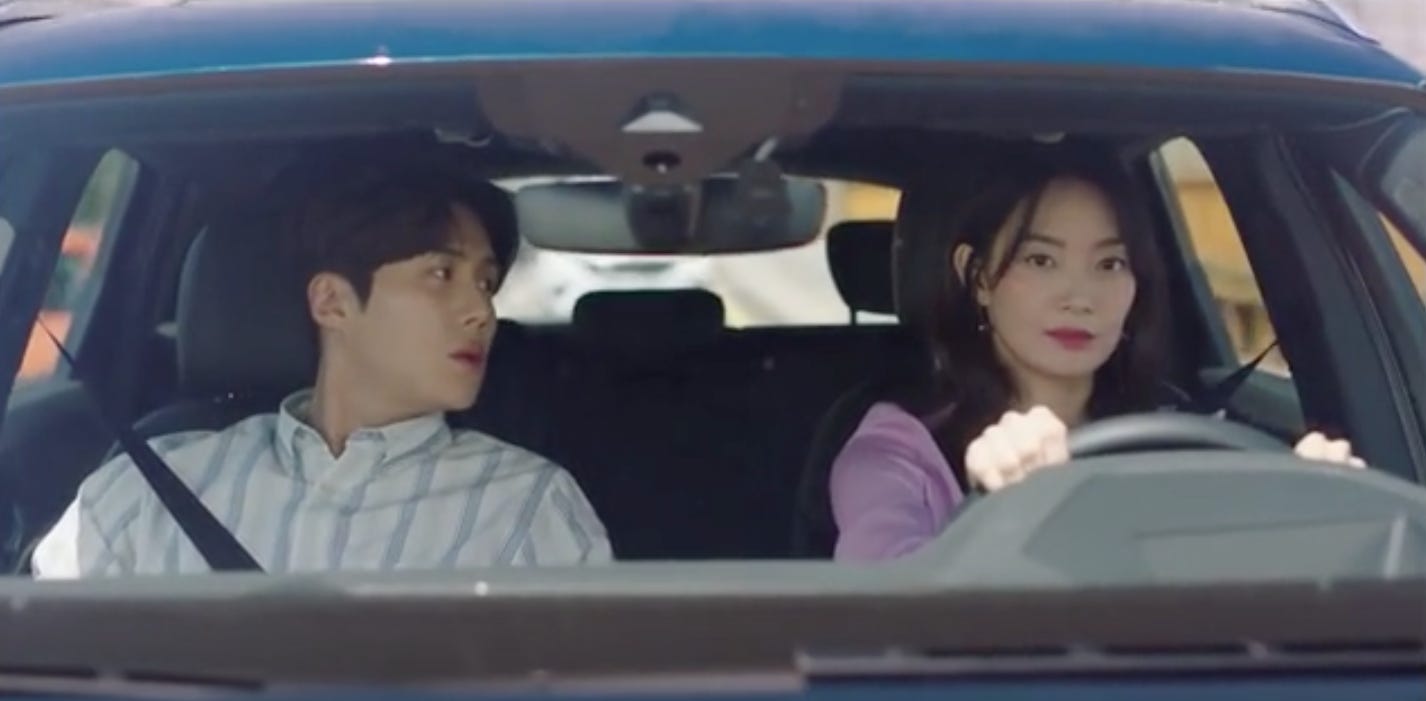
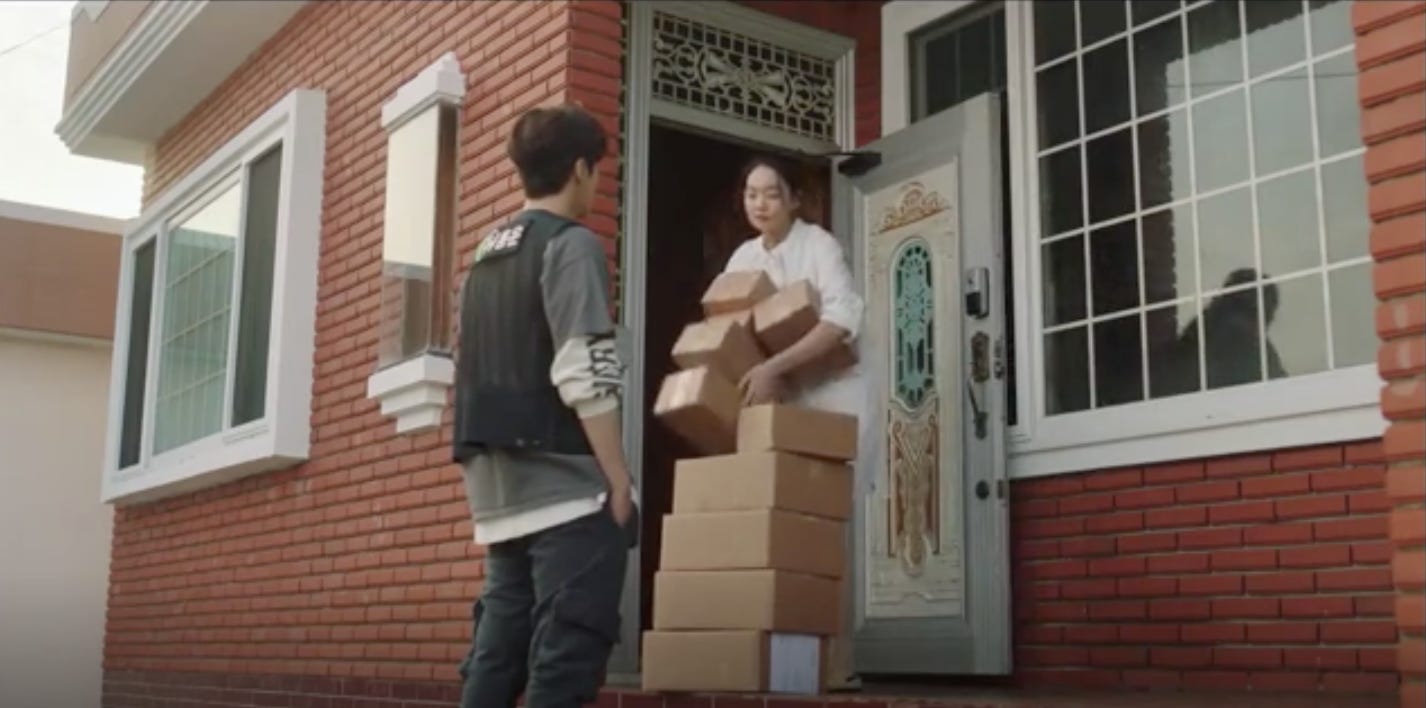
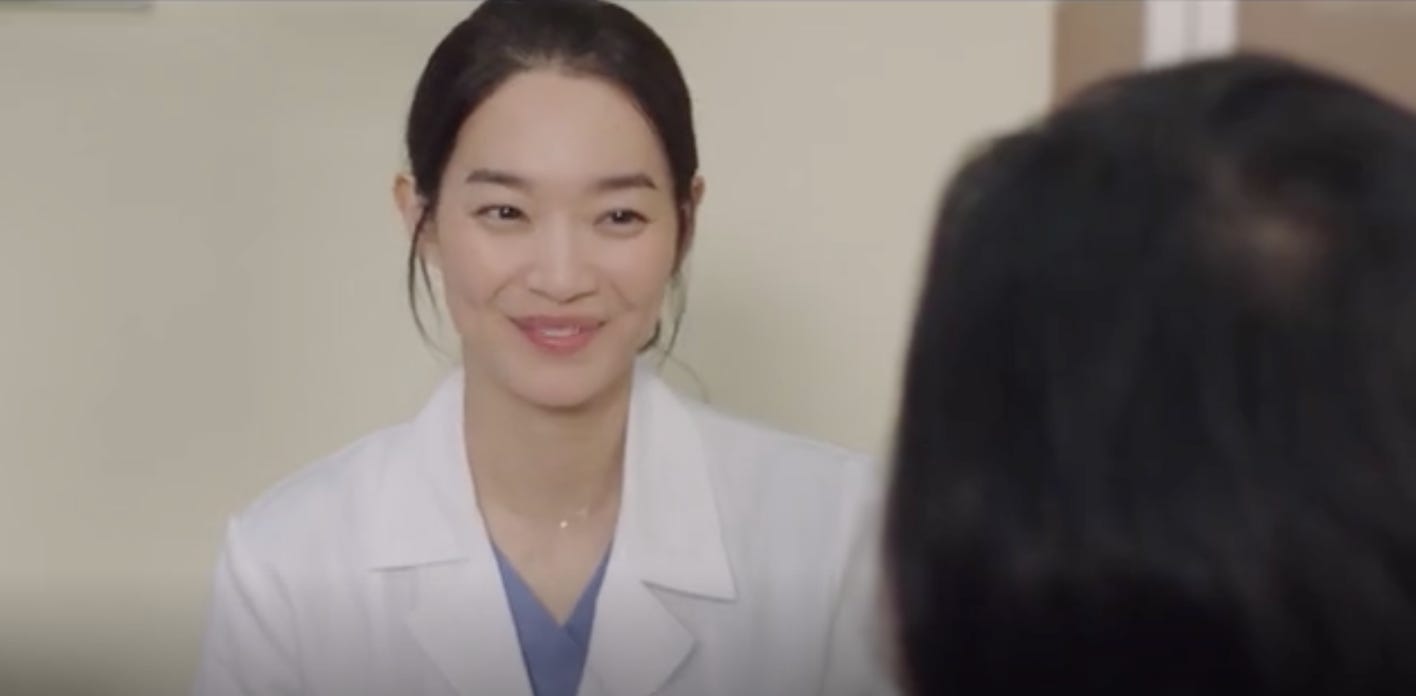
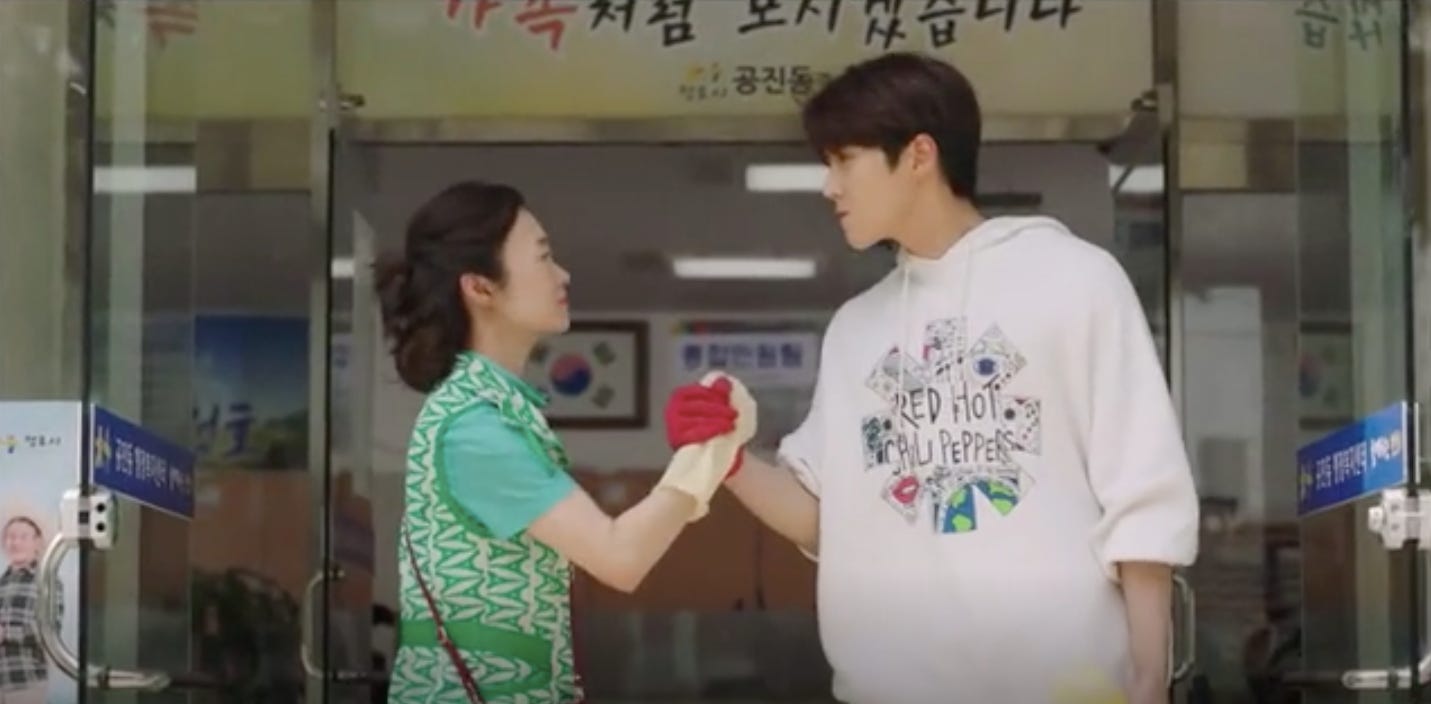
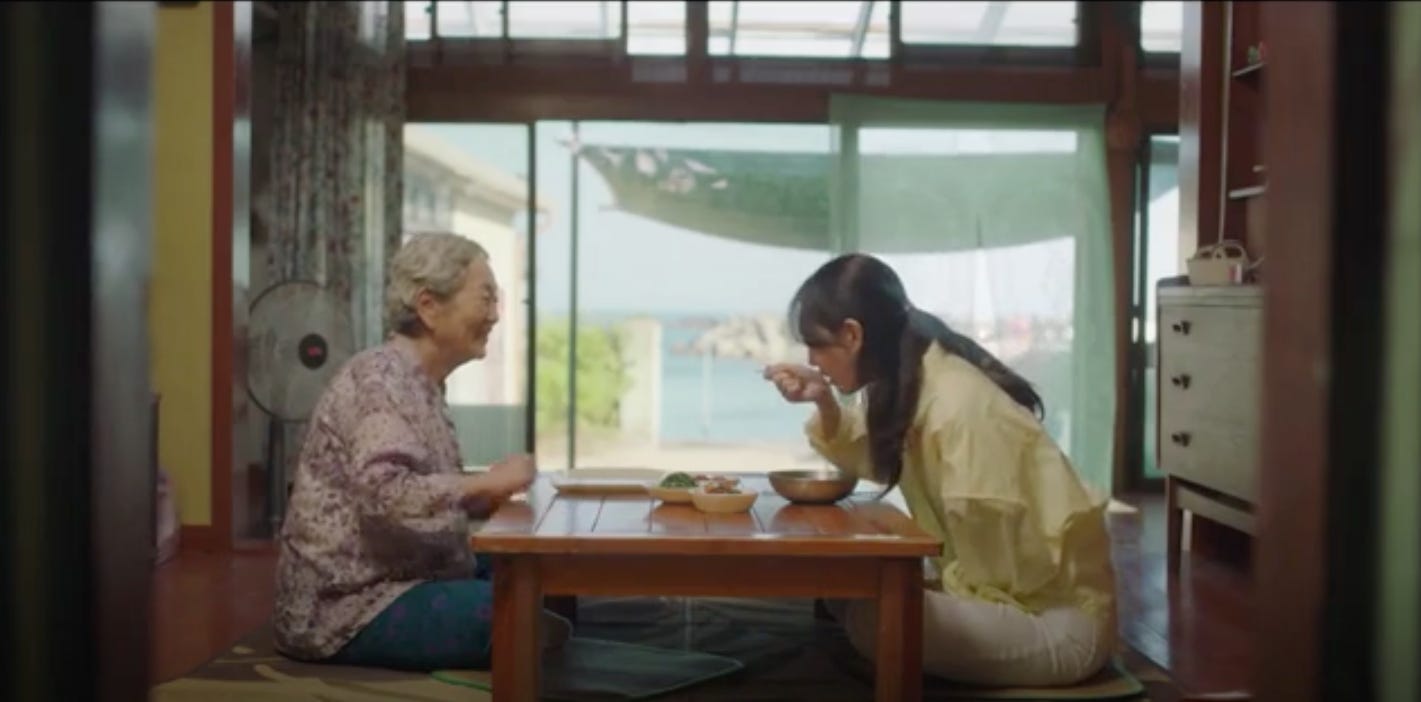

Wow.. finally someone said it and thank you for this!
The first impression is almost ALWAYS the visuals for us humans. That is probably the reason why Kim SeonHo, being the cutie that he is flashing his dimples, melts our hearts but I of all people certainly can't go on for 16 episodes just for the looks. The cinematography, beaches, costumes are all eye-catching. But there's something very obvious which doesn't meet the eye at first.
I low key blame Hospital Playlist for setting such high standards when it comes to script. I'd rather stick to scripts where the writer leaves the understanding part to the audience rather than making is obvious and repetitive with too many flashbacks (sorry Hwarang fans).
You hit the nail on the head when you said had the charming KSH not played Du-sik, he would seem like a pervert. Interestingly he doesn't judge anyone else but HyeJin and I wonder whether that was a deliberate plot that would follow with a mandatory apology that would eventually melt the FL's heart. And surprise surprise!
It's like you ask JJS to play a murderer with his dreamy eyes and us visual-hungry audience low key expect him to turn into a devil judge by the end of the season.
Thanks for the first impression review! It's very pretty to look at, from the clips I saw, but I will hold first and binge only after it finishes airing, if it is worth watching. I dont wanna invest my time watching something disappointing.